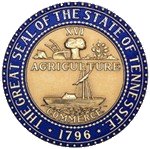Taxpayers Filing Franchise and Excise Tax Returns, Gift Tax Returns, and Hall Income Tax Returns Have Until April 18th, 2011 to File
 Nashville, TN – Taxpayers who normally file their franchise and excise taxes by April 15th, as well as those filing their individual income taxes and gift taxes by April 15th, have a few extra days to file this year, due to recently passed legislation.
Nashville, TN – Taxpayers who normally file their franchise and excise taxes by April 15th, as well as those filing their individual income taxes and gift taxes by April 15th, have a few extra days to file this year, due to recently passed legislation.
House Bill 1992 / Senate Bill 1520, passed in the legislature April 11th, 2011 and signed by Gov. Bill Haslam on April 13th, officially extends the due date for franchise and excise tax returns, Hall income tax returns and gift tax returns to match the federal due date. For 2011, this date is April 18th. Returns normally due on April 15th that are postmarked on or before April 18th, 2011 will be considered timely filed.
Taxpayers should note that franchise and excise tax estimated payments are still due on April 15th.
The official due date for filing individual federal tax forms with the Internal Revenue Service is April 18th instead of April 15th due to observance of Emancipation Day in Washington, D.C. This legislative change in Tennessee allows taxpayers to effectively have the same due dates for their state tax returns as they have for their federal 1040 series return.
“This legislative action makes good sense for taxpayers in Tennessee,” said Revenue Commissioner Richard H. Roberts. “Allowing our state’s citizens the same extended due date available to them at the federal level will help eliminate confusion on part of our taxpayers and ensure they are given credit for filing timely.”
About the Tennessee Department of Revenue
The Tennessee Department of Revenue is responsible for the administration of state tax laws and motor vehicle title and registration laws established by the legislature and the collection of taxes and fees associated with those laws. The Department of Revenue collects approximately 91 percent of total state tax revenue. During the 2009-2010 fiscal year, the department collected $10.1 billion in state taxes and fees. In addition to collecting state taxes, the Department of Revenue collects taxes for local, county and municipal governments. During the 2009-2010 fiscal year, local government collections by the Department of Revenue exceeded $1.9 billion. In collecting taxes, the department enforces the revenue laws fairly and impartially in an effort to encourage voluntary taxpayer compliance. The department also apportions revenue collections for distribution to the various state funds and local units of government. To learn more about the department, log on to www.TN.gov/revenue.


